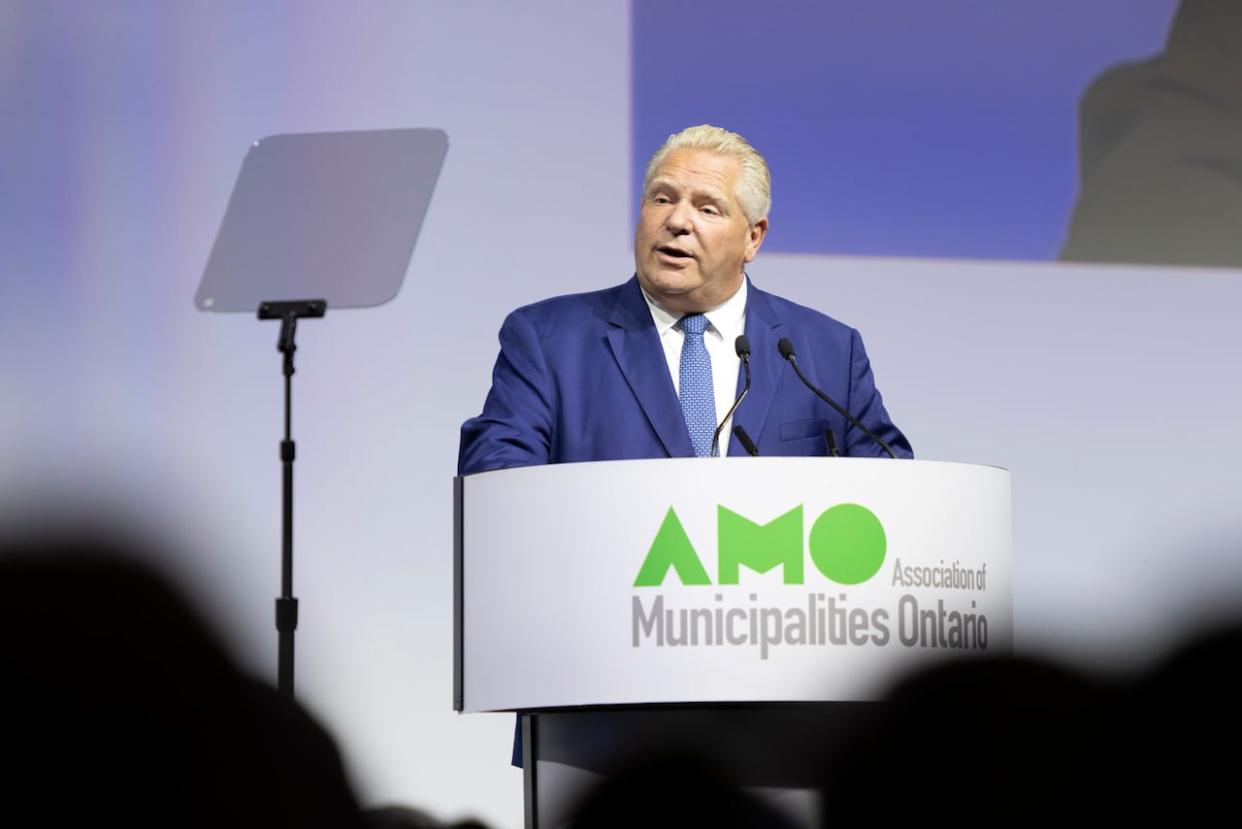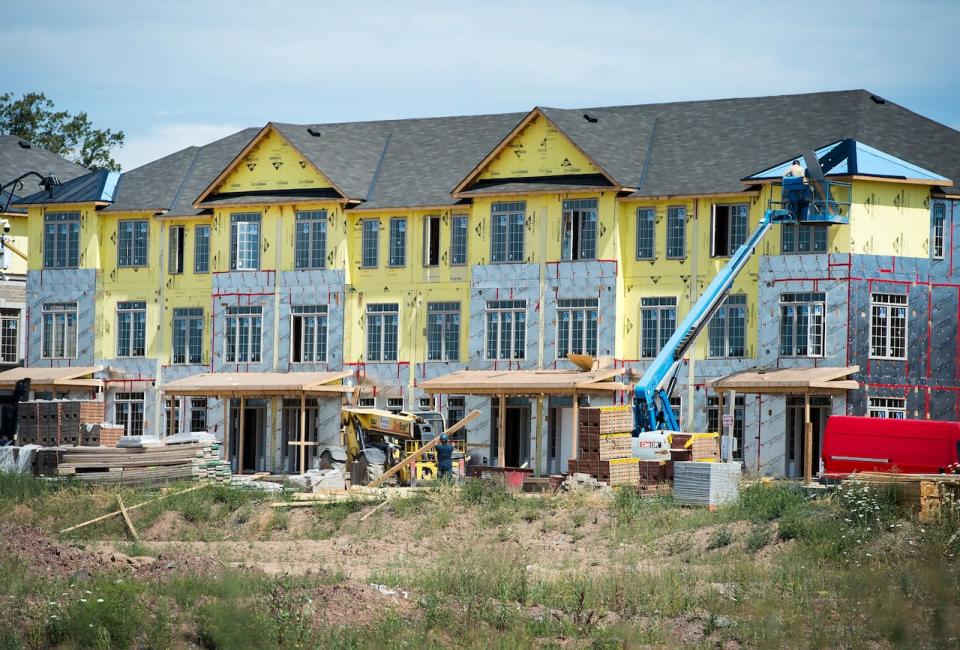Ontario to expand 'strong mayor' powers to smaller cities, launches $1.2B home-building incentive fund

The Ontario government will extend so-called "strong mayor" powers to almost two dozen smaller cities and is launching a $1.2 billion fund to reward municipalities that meet provincially-mandated home-building targets, Premier Doug Ford said Monday.
Speaking at the annual conference of the Association of Municipalities of Ontario, Ford said the measures will help towns and cities meet the province's goal of building 1.5 million homes by 2031 to address the housing shortage, affordability crisis and rapid population growth driven by immigration.
"This struggle is being felt most by young people and newcomers, who are priced out of the dream of home ownership," Ford told representatives of the province's 444 municipalities gathered in London, Ont.
"Failing to act would worsen the housing supply affordability crisis.... Failing to act would threaten to erode Canadians' unwavering support for immigration at a time when our economic success depends on welcoming skilled newcomers to fill critical labour gaps."
His remarks come just weeks after his government faced intense criticism over its handling of the decision to open up parts of the protected Greenbelt for housing, a decision for which Ford cited the same rationale.
21 more cities to get strong mayor powers
A year and half ago, Ford's Progressive Conservatives laid down specific housing targets for 29 of the province's largest and fastest-growing municipalities to hit by 2031.
Ford announced Monday that targets had been assigned to 21 additional municipalities with populations projected to exceed 50,000 by 2031, including Aurora, Sarnia, Thunder Bay and Belleville.
If the heads of council for these 21 municipalities commit in writing to these targets by Oct. 15 of this year, they will receive strong mayor powers by the end of that month, according to a background document provided by the province.
Strong mayor powers include allowing mayors to propose housing-related bylaws and pass them with the support of one-third of councillors, as well as override council approval of certain bylaws and prepare their city's budget, instead of council.
These new powers were first granted to Toronto and Ottawa in December 2022. In June of this year, Minister of Municipal Affairs and Housing Steve Clark extended the powers to 26 other municipalities where councils signed on to the province's housing targets, including Oakville, Milton, London, Windsor, Hamilton and Niagara Falls.
Monday's announcement brings the total number of Ontario municipalities with access to strong mayor powers to 49. Newmarket was denied the powers despite being assigned a housing target because the town hasn't committed to achieving its target of 12,000 homes by 2031.
The powers, which effectively allow minority rule on issues of "provincial priorities," including housing, have been criticized by some as undemocratic.
Municipalities on track to meet targets can access funds
Ford also said Monday that municipalities that show progress toward meeting their housing targets will become eligible for funding from a new three-year, $1.2-billion program called the "building faster fund."
Municipalities must reach 80 per cent of annual housing targets to access the funds, according to the province. Performance will be determined by comparing a municipality's number of housing starts and additional residential units creased in a given year against their annual target.
"These are incredible sums of money that will reward municipalities for building homes and help pay for important infrastructure and community building projects," Ford said.
The exact parameters for what the money could be spent on still needs to be worked out, Ford said, but the cash is intended to be used to pay for infrastructure to service the needs of new residents, including roads, water and sewer lines.

Ford says the move to extend strong mayor powers to 21 more cities will ensure the municipalities can deliver on housing commitments as the province works toward a goal of building 1.5 million homes in 10 years. (Nathan Denette/The Canadian Press)
In his speech, Ford held up the cities of Vaughan and Pickering in the Greater Toronto Area as examples. According to the premier, those cities are on track to exceed their housing targets by 150 per cent and 140 percent, respectively, which would entitle Pickering to more than $5 million in new funding and Vaughan to more than $17 million.
Ten per cent of the money in the new fund will be reserved for small, rural and northern communities, Ford said, which have not yet been assigned a housing target by the province.
Municipalities have been raising concerns about a provincial law that cuts some of the fees developers pay, which the communities use to fund such infrastructure.
The More Homes Built Faster Act, which passed in November 2022, froze, reduced or exempted developers from paying fees municipalities charge them for some types of housing, including affordable housing, non-profit housing and inclusionary zoning units — meaning affordable housing in new developments — as well as some rental units.
The Association of Municipalities of Ontario has warned the changes could leave municipalities short $5 billion and see taxpayers footing the bill — either in the form of higher property taxes or service cuts — and that nothing in the bill would guarantee improved housing affordability.
Speaking just hours after Ford, Ontario NDP Leader Marit Stiles told the conference the new "temporary" fund isn't enough to replace permanent revenue municipalities lost with the passage of the act.
"It's more than a little backwards to effectively punish municipalities for not building housing when they don't have the funding or the provincial partner they need to do so," Stiles said, according to prepared remarks.


